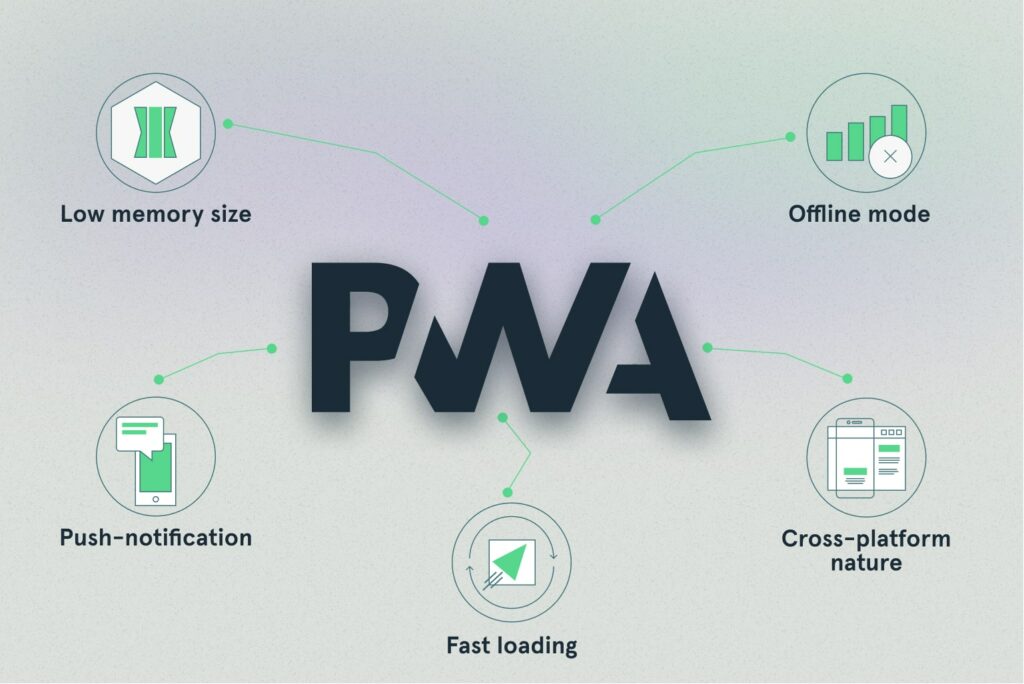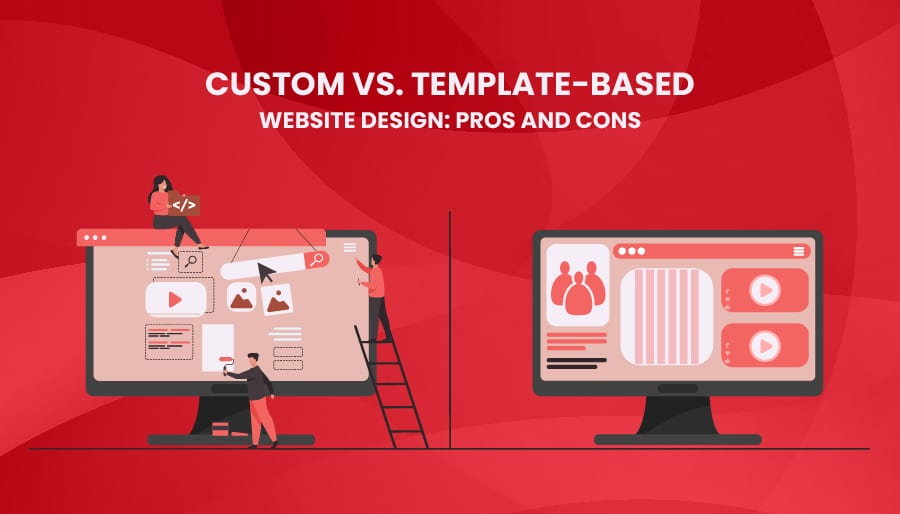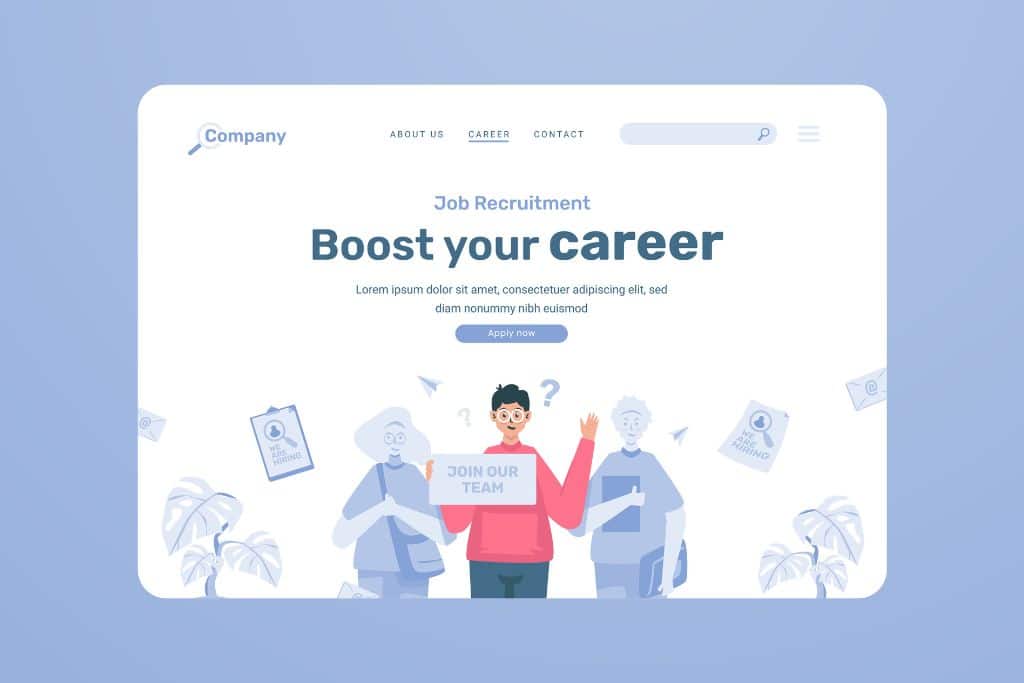The Benefits of PWAs for Your Business
PWAs, or progressive web apps, have completely changed the digital environment by providing companies with an effective tool for increasing user engagement and experience. PWAs give users a quick, dependable, and entertaining experience on all devices by combining the finest elements of native mobile apps and webpages. The numerous advantages of implementing PWAs for your company will be discussed in this article, along with the reasons why they are quickly becoming a crucial component of contemporary web strategy.
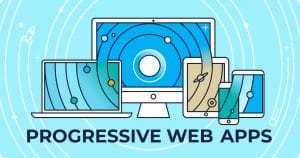
What Are Progressive Web Apps (PWAs)?
Developed with common web technologies like HTML, CSS, and JavaScript, Progressive Web Apps (PWAs) provide the features and user experience of native mobile apps. The primary distinction is that PWAs don’t need to be downloaded from an app store; instead, they may be viewed straight from a browser. They are therefore a more practical and adaptable option for companies wishing to improve their internet visibility.
The capacity of the software to work consistently across several platforms, independent of the device or browser being used, is referred to as the “progressive” element. PWAs enable offline capability, quick load times, and increased user engagement. They are made to function flawlessly on desktop and mobile devices.
Key Benefits of PWAs for Your Business
PWAs provide companies a number of benefits that aren’t always possible with mobile apps and standard websites. The most persuasive advantages that make PWAs a desirable choice for contemporary businesses are listed below.
1. Improved Performance and Faster Load Times
The effectiveness of PWAs is among their most important advantages. Because PWAs are speed-optimized, they considerably shorten load times when compared to conventional websites. In the fast-paced digital world of today, where people demand websites to load nearly instantly, this is extremely crucial.
PWAs cache resources and content using service workers, which are background-running scripts. Because of this, PWAs may load rapidly even on sluggish networks, which makes them perfect for users with spotty internet access. Improved user experience and greater engagement are the outcomes of faster load times, and these factors can eventually raise conversion rates.
2. Cost-Effective Development and Maintenance
The process of creating a native mobile application can be expensive and time-consuming. Usually, a company has to create distinct versions for iOS and Android, which might double the cost of development. Regular upgrades and maintenance are also necessary for both app versions.
PWAs, on the other hand, are constructed with common web technologies, thus a single version of the application can operate on several platforms (iOS, Android, Windows, etc.). Both development and maintenance expenses are greatly decreased as a result. Businesses can save development expenses while still providing customers with a top-notch app-like experience by implementing a PWA. https://diversewebsitedesign.com.au/influencer-website-design/
3. Improved User Engagement
Compared to conventional websites, PWAs are intended to offer a more engaging experience. Businesses can encourage users to engage with the app even when they are not actively surfing the website by providing them with real-time updates through features like push notifications. This might boost retention rates and assist companies in forging closer bonds with their clientele.
Additionally, PWAs let users “add to home screen” (exactly like native apps do), which boosts exposure and interaction. It is simpler for users to access and interact with your business whenever they need to because they may start the app straight from their home screen.
4. Enhanced Offline Functionality
The capacity of PWAs to function offline or in low-network environments is one of their most inventive features. PWAs allow users to continue using the app even when they are not online by leveraging service workers to cache content and resources on the device.

Businesses that wish to offer continuous access to their services or content, irrespective of the user’s connectivity, will find this to be especially beneficial. Users can explore products, add items to their basket, and even complete a transaction on an e-commerce website that is designed as a PWA while they are offline. The user’s actions are synchronized after they reconnect to the internet.
5. Better SEO and Discoverability
PWAs may be found by search engines, in contrast to native mobile apps that consumers must download from an app store. Businesses benefit from this in terms of search engine optimization (SEO). PWAs have the ability to rank in search results and be indexed by Google and other search engines, which makes it simpler for prospective clients to find your company online.
Without depending only on app store rankings, your company can boost its organic search presence and drive more traffic to your website by implementing a PWA. Find a web designer in perth here.
6. Improved Conversion Rates
PWAs may greatly increase conversion rates, which are an important measure for any business. PWAs provide a smooth and captivating experience that motivates consumers to act because of their quick load times, offline functionality, and mobile-first design.
For instance, by offering a seamless, hassle-free purchasing experience, an e-commerce site designed as a PWA might raise the possibility that visitors would complete a purchase. Higher conversion rates result from users returning to the website and completing their transactions more frequently when push notifications are available and the site may be accessed even when offline.
7. No App Store Barriers
program shops like Google Play and the Apple App Store have lengthy review processes for native apps, and if your program doesn’t follow their rules, it can be rejected. On the other hand, app stores do not need to approve PWAs. You can start your PWA right away as long as your website complies with basic web standards.
Because PWAs can be updated quickly without waiting for user consent or downloads, this gives businesses more control over their distribution and enables faster upgrades.
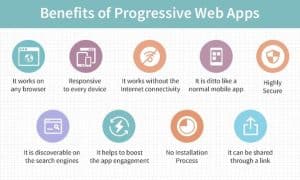
How PWAs Are Changing the Digital Landscape
PWA use has been increasing gradually in a number of industries. PWAs have already been adopted by numerous big businesses, such as Twitter, Pinterest, and Starbucks, and they have observed notable gains in user performance and engagement. For example, Twitter’s PWA resulted in a 20% rise in page load times and a 75% increase in Tweets sent.
PWAs are particularly helpful for companies in industries where user engagement, performance, and offline functionality are critical, like e-commerce, news, travel, and entertainment. PWAs are a popular option for companies trying to remain ahead in the cutthroat digital market since they can offer a top-notch, app-like experience without the trouble of app store installs.
Conclusion
Businesses can benefit from a variety of advantages with progressive web apps, such as quicker load times, increased user engagement, more affordable development, and better SEO. PWAs enable companies to adapt to the demands of today’s mobile-first world by offering a smooth, app-like experience across all devices and guaranteeing that your website functions properly even in low-network situations.
Adopting a PWA could be the secret to giving businesses a competitive edge, raising conversion rates, and cultivating enduring client relationships as they seek to improve their online presence. Consider including a Progressive Web App in your digital strategy if you want to grow your company.


